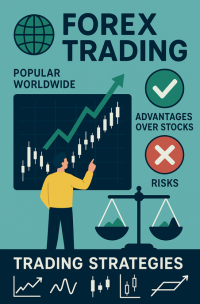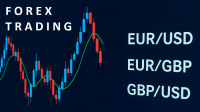These platforms, developed by MetaQuotes Software, continue to be the preferred choice for retail and institutional forex traders. This article explores the primary reasons behind their dominance and the advantages they offer over competing platforms.
1. Established Market Presence and Trust
MetaTrader platforms have been in the market for over two decades, with MT4 launching in 2005 and MT5 in 2010. This long-standing presence has allowed them to gain the trust of millions of traders worldwide. Brokers also prefer MetaTrader due to its widespread acceptance, making it the industry standard.
2. Superior Charting and Analysis Tools
One of the key reasons forex traders favor MT4 and MT5 is their robust charting and analysis capabilities. These platforms offer:
- Multiple timeframes
- Various technical indicators
- Customizable charting tools
- Automated trading through Expert Advisors (EAs)
Traders can execute precise technical analysis and develop trading strategies with ease, making these platforms invaluable.
3. Algorithmic and Automated Trading
MetaTrader platforms excel in algorithmic trading, allowing traders to use automated trading bots called Expert Advisors (EAs). These bots help execute trades based on pre-defined criteria without manual intervention. The MQL4 (MT4) and MQL5 (MT5) programming languages enable traders to develop custom indicators, scripts, and strategies, providing flexibility unmatched by other platforms.
4. Broad Broker Support
Most forex brokers integrate MT4 and MT5 into their services due to their popularity. This widespread adoption ensures traders have multiple brokerage options, making it easier to switch brokers without changing trading platforms. Additionally, brokers provide seamless execution, order management, and liquidity solutions on these platforms.
5. User-Friendly Interface
MT4 and MT5 are designed with simplicity in mind, making them accessible to beginners while offering advanced features for experienced traders. The platforms provide:
- One-click trading
- Customizable workspaces
- Easy navigation
This balance of functionality and ease of use enhances the trading experience and contributes to their popularity.
6. Security and Stability
Forex traders require secure and stable platforms to execute trades efficiently. MetaTrader platforms are renowned for their robust security measures, including:
- Encrypted data transmission
- Secure login authentication
- Reliable server infrastructure
These security features protect traders from cyber threats and ensure smooth trading operations.
7. Multi-Asset and Cross-Device Trading
While MT4 is primarily designed for forex, MT5 supports additional asset classes such as stocks, commodities, and futures. Both platforms offer cross-device functionality, allowing traders to access their accounts via desktop, mobile, and web applications. This flexibility ensures traders can manage their portfolios anytime, anywhere.
8. Large Community and Support
MetaTrader platforms have a vast global community where traders can share strategies, buy/sell indicators, and discuss market trends. Additionally, numerous online resources, tutorials, and forums provide support for new and experienced traders alike. This extensive knowledge base makes it easier for traders to learn and optimize their trading approaches.
Conclusion
The dominance of MetaTrader 4 and MetaTrader 5 in forex trading is driven by their reliability, extensive broker support, superior charting tools, algorithmic trading capabilities, and user-friendly design. Their security, cross-device functionality, and large trading community further cement their position as the industry standard. While other trading platforms exist, none have been able to challenge the widespread adoption and trust that MT4 and MT5 enjoy. For these reasons, MetaTrader platforms continue to maintain a near-monopoly in the forex trading industry.








